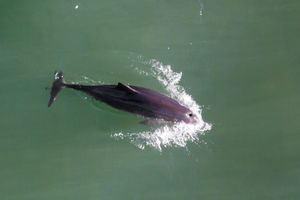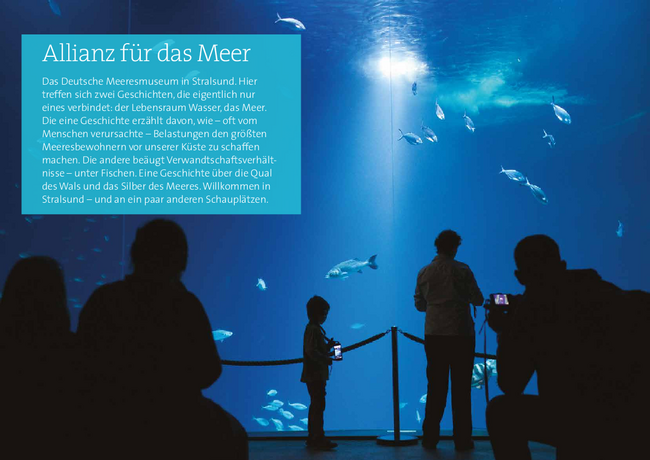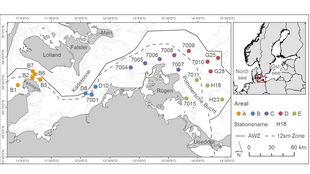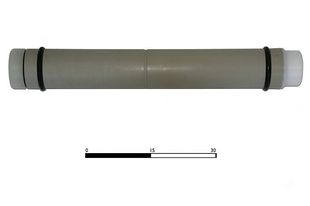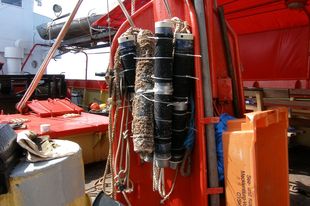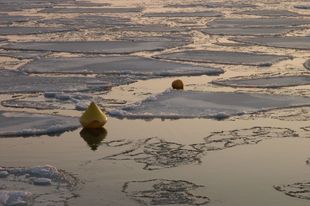TopSpace
| Name | TopSpace: Monitoring and evaluation of marine mammals |
| Sponsor | Federal Agency of Nature Conservation (BfN) |
| Duration | November 2014 to September 2017 |
| Cooperation partner | Christian-Albrechts university Kiel (CAU), Research and Technology Centre (FTZ), project management University of Veterinary Medicine Hannover (TiHo), Institut for Terrestrial and Aquatic Wildlife Research (ITAW) |
| Project management FTZ | Prof. Dr. Stefan Garthe, Kai Borkenhagen (FTZ) |
| Project management ITAW | Prof. Prof. h.c. Dr. Ursula Siebert |
| Project management GOM | Dr. Harald Benke |
| Project staff GOM | Dipl.-Biol. Anja Gallus, Martin Jabbusch |
Seabirds and marine mammals are as top predators an important component of marine ecosystems. They are exposed to increasing burdens due to anthropogenic activities such as fishing, the development of offshore wind energy, ship traffic, marine pollution, etc. The acquisition and assessment of their population and the knowledge of their distribution patterns and habitat requirements are the prerequisites for their effective protection and a useful protection area management.
The monitoring and the condition assessment of marine mammals are the basis for the implementation of the Natura 2000 report obligation and the regional convention for the protection of the marine environment of the north-east Atlantic (OSPAR), the Helsinki convention (HELCOM) as well as the marine strategy framework directive (MSRL).
On behalf of the Federal Agency for Nature Conservation the German Oceanographic Museum conduct studies on the distribution patterns, population sizes and trends of seabirds and marine mammals under the direction of the Research and Technology Centre and in cooperation with the Institute for Terrestrial and Aquatic Wildlife Research at the University of Veterinary Medicine in Hannover. The research is based on the repeated large-scale surveys of the presence of seabirds and marine mammals in the German North Sea and Baltic Sea. These surveys using standardized methods obtain data and information on spatio-temporal patterns and the spatial use for seabirds and marine mammals in the ecosystem of the North Sea and Baltic Sea.
The tasks are divided into subject-specific tasks and are scientifically implemented by the cooperation partner with the required competence. The German Oceanographic Museum does the monitoring and the evaluation of marine mammals in the German Baltic Sea. Data on the presence and distribution of porpoises are obtained regularly by the passive acoustic monitoring. The project reverts to the results of the investigation carried out in the past years and continues the tasks with extended parameters.
The results of the project serve the reporting requirements as well as other enforcement tasks (for example assessment of anthropogenic interventions) in the EEZ as a scientific basis for the Federal Agency for Nature Conservation. In addition, the assessment program also provides the basis for evaluations within the framework of the FFH RL / VRL and the MSRL, and indicators for OSPAR and HELCOM are developed.
Monitoring of marine mammals 2014 in the German North and Baltic Sea (only in German)
Monitoring of marine mammals 2013 in the German North and Baltic Sea (only in German)
Monitoring of marine mammals 2012 in the German North and Baltic Sea (only in German)
Marine mammals and birds in the German EEZ of the North and Baltic Sea – report marine mammals 2011 (only in German)
Marine mammals and birds in the German EEZ of the North and Baltic Sea – report marine mammals 2010 (only in German)
